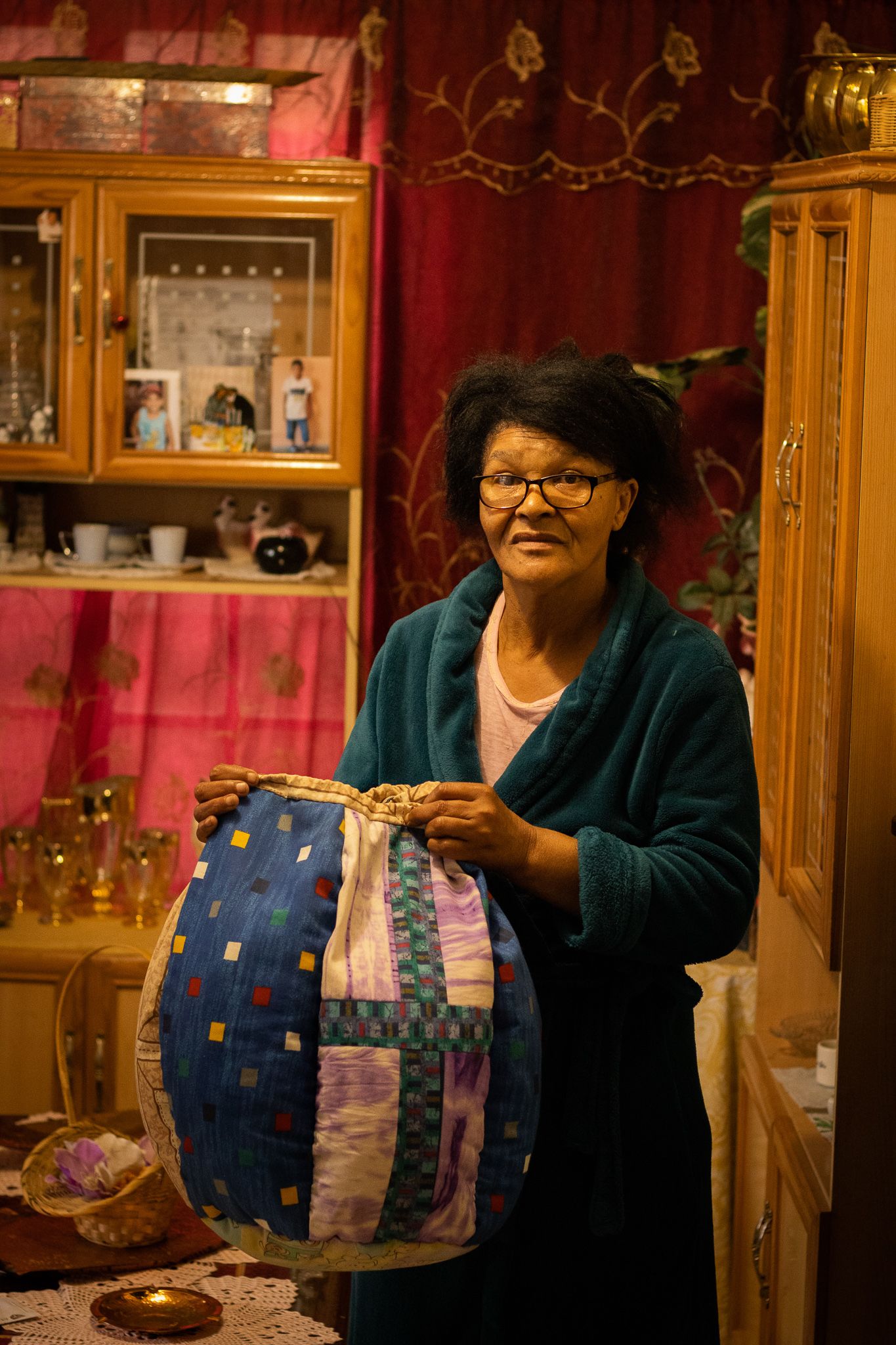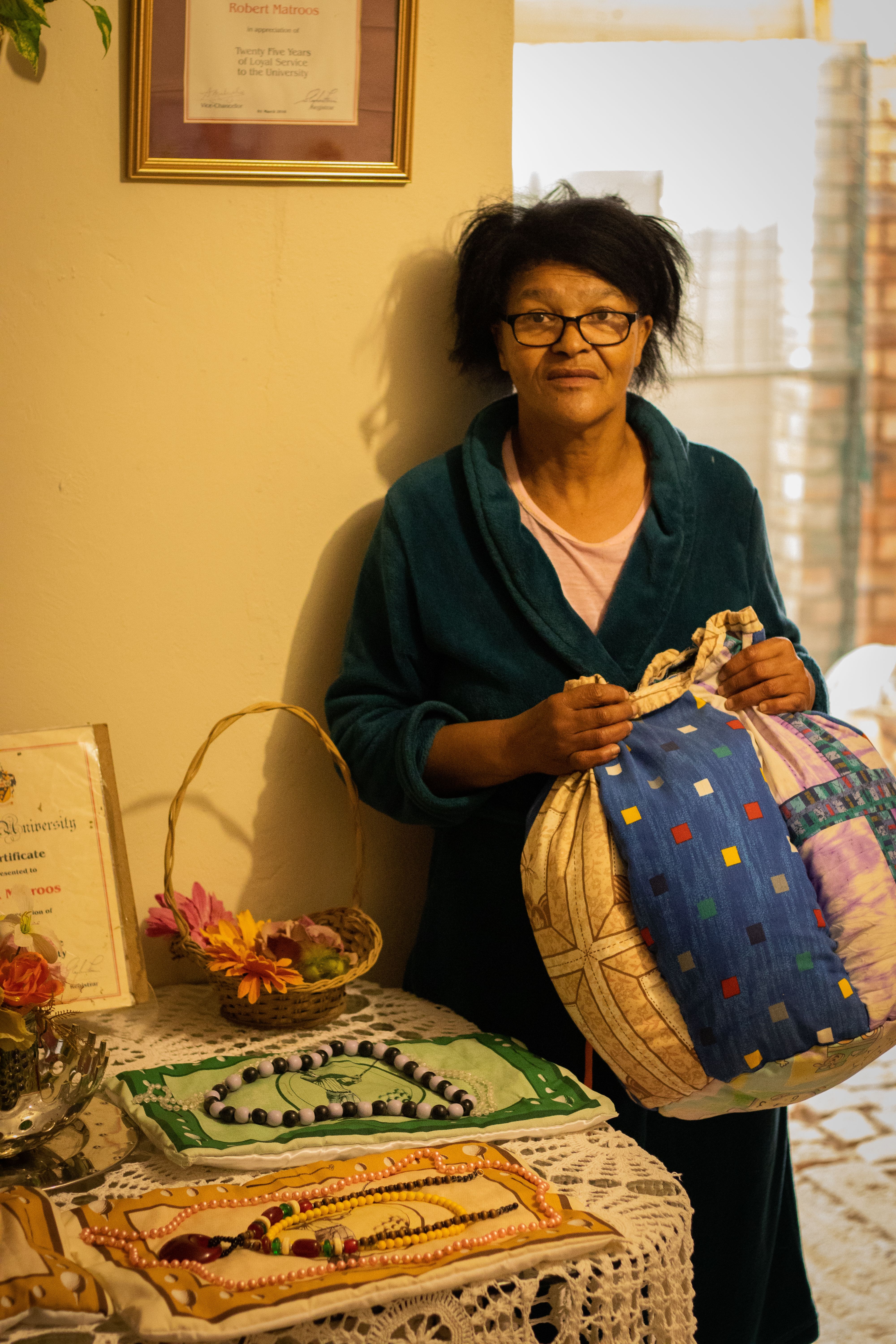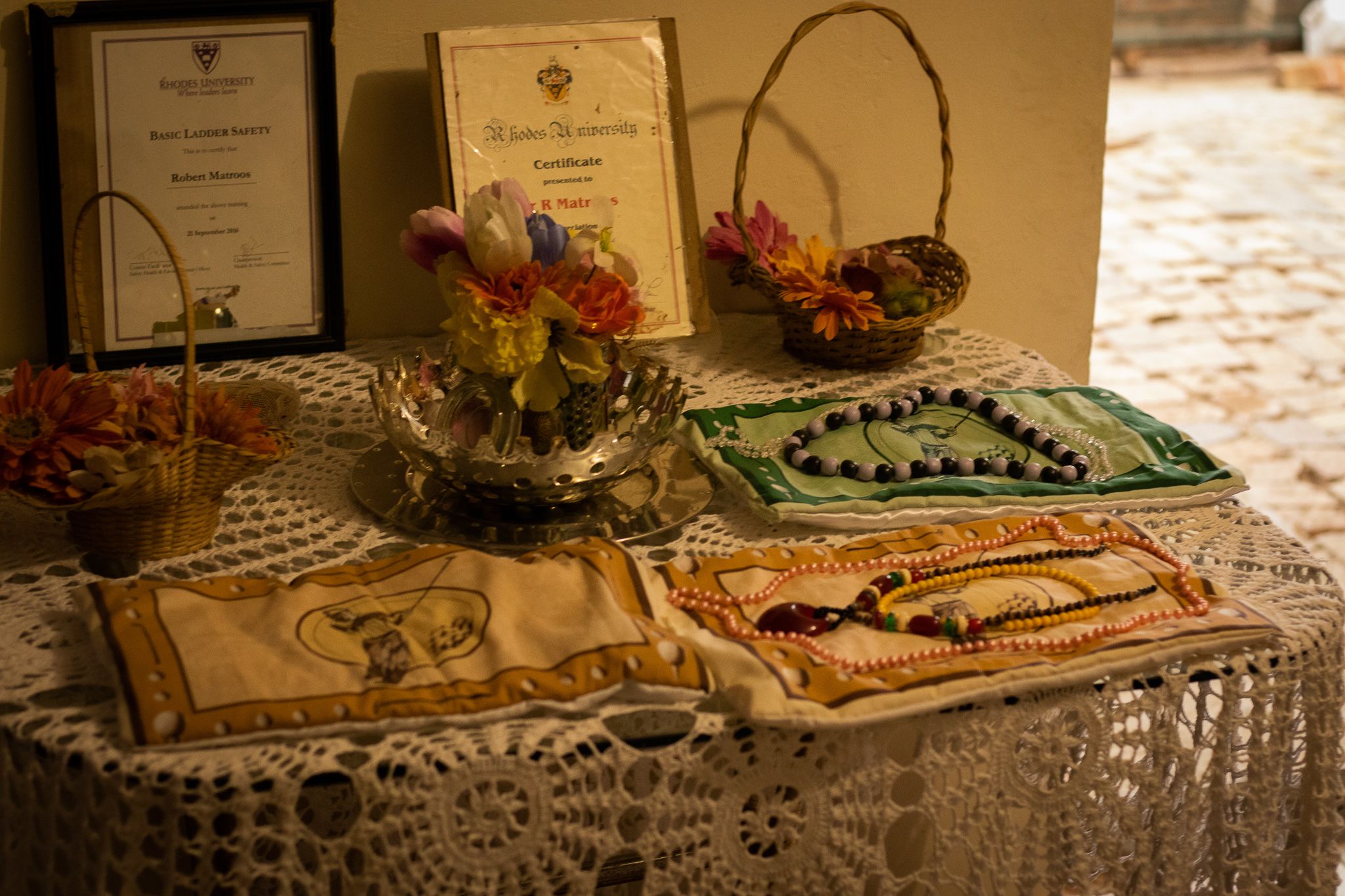Aunty Betty's
Soup Kitchen

What started as an endeavour to help a few of her neighbours quickly turned into a full-blown meal centre. Aunt Betty's soup kitchen is now open to all community members, with people coming from informal settlements as far as Papamani, willing to travel the distance to obtain a meal.
Betty explains how many families go without food for two to three days at a time. "When you go around the community, the yards look very clean, but if you go inside, you'll find that it's empty. There's nothing in the house." Her words paint a vivid picture of the reality in Makhanda. Although things may appear functional from a distance, a closer look at the outlying areas of the town reveals a community steeped in scarcity.
“My mother used to make big pots of food and share, so I do that, and I work with anyone who wants to help." Currently, Betty relies on rare donations and funds from her own pocket to keep the soup kitchen running. Betty has sent letters to local supermarkets to secure assistance for funding but is yet to hear back from them.
Beyond the soup kitchen, she also collects clothing and toys to give out. "The thing that makes my heart sore about this community is the children. I've had some children asking me what a present is," Betty says. She has made it a habit to collect toys and wrap them up, giving them out to children when she can. "If I don't get any toys, I take R100 and just buy sweets to give [the children] so they can feel happy." Her laugh is laced with the unmistakable affection of a doting mother. Perhaps inversely, clean yards and empty houses reflect individuals like Betty, who uses what she has and takes care of who she can.



